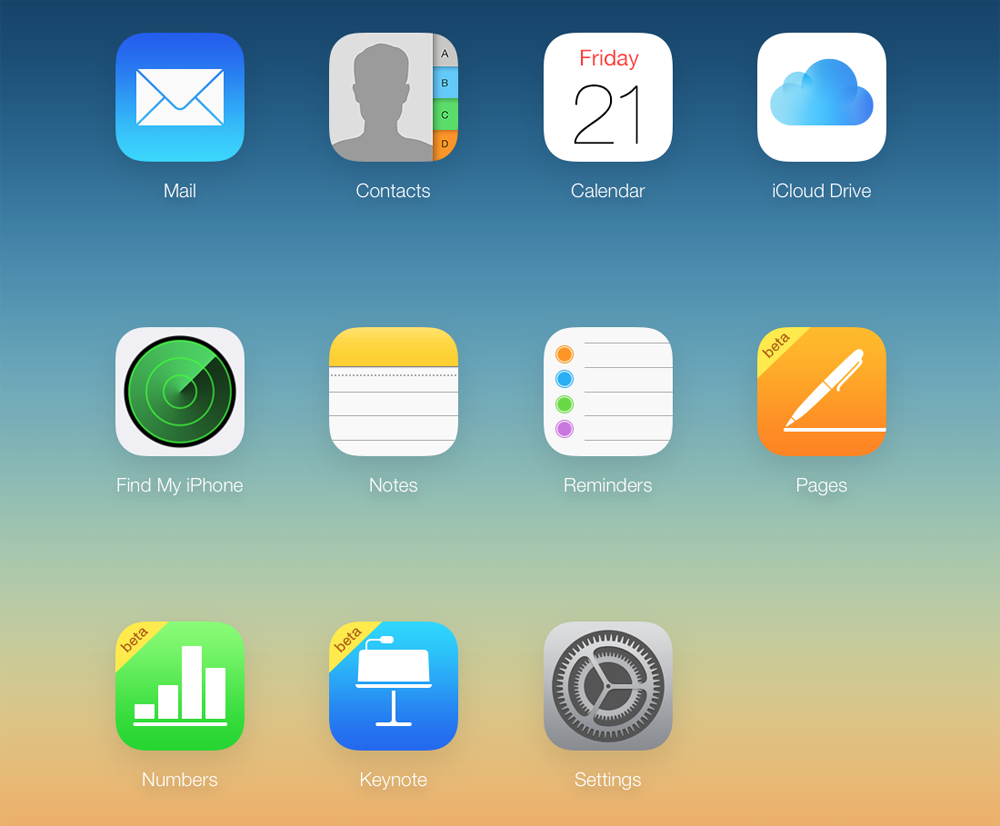Iwork 2014

Play outlast online no. Features are subject to change. IWork for iCloud is currently available worldwide in Arabic, Brazilian Portuguese, Danish, Dutch, Finnish, French, German, Hebrew, Italian, Japanese, Korean, Norwegian, Polish, Portuguese, Simplified Chinese, Spanish, Swedish, Traditional Chinese, and U.S. English and requires an iCloud account and an internet.
Iwork 2013 Download
| File Format | |
|---|---|
| Name | iWork |
| Ontology |
|
| Extension(s) | .pages, .pages.zip, .numbers, .numbers.zip, .key, .key.zip |
| PRONOM | fmt/824, fmt/825, fmt/646 |
| Released | 2005 |
- Keynote by the Honorable Hillary Rodham Clinton - 2014 New America Conference (Original post).
- IWork 2014 An new iWork for iOS and Mac makes editing, creating and sharing documents simpler than ever. IWork presents a brand new, single file format, providing perfect doc fidelity across the iWork for iCloud beta, iOS and iCloud, and Mac now contains support for real time collaboration.
iWork is an Apple application suite available as apps for OS-X and iOS as well as in a cloud-based version on iCloud. It comprises Pages (word processing and desktop publishing), Numbers (spreadsheets), and Keynote (presentations). As of 2014, Apple seems to have deprecated the 'iWork' name, but they haven't introduced any other collective name for their office-suite applications, so people discussing and reviewing them still tend to call it by this name even if Apple isn't.
The web-based cloud version can be run in a browser (Not all browsers are fully supported; when you try it in Firefox, it says that it is an unsupported browser, but seems to work anyway, though it is possible some features aren't fully functional), and is free for iCloud users. The app versions are paid, though apparently they come free with newly-purchased iOS devices since late 2013; they will sync automatically with iCloud to access cloud-stored documents.
Current versions of the iWork applications can load and save the corresponding Microsoft Office file types (using, apparently, the 2003 file versions): DOC (Word), XLS (Excel), and PPT (Powerpoint). Mac to word. (Apparently earlier versions couldn't, as the Wikipedia article claims a lack of interoperability with Microsoft's programs.) They can also save as PDF, producing a static document that can be useful for viewing, but not so much for editing or import into other software. And then there is the native iWork format, used in slight variations for each of the three applications, and bearing .pages, .numbers, and .key extensions respectively, or double extensions .pages.zip, .numbers.zip, and .key.zip in some versions when saved in a ZIP file.
iWork files, when saved under Mac OS-X, are in a bundle format that is actually a directory/folder. Autocad electrical 2013 full version with crack. Saved in other systems, or exported as e-mail attachments, they are ZIPped and have sometimes used the double extension as noted above (but in newer versions seem to be saved with a single iWork-specific extension without the zip suffix, even though they're still zipped). (Reportedly, the 2014 versions save in a different single-file compressed format if saved on a Mac system, unless you reconfigure them to save in the traditional bundle format.)
|
File preservation
Anybody interested in long-term access to iWork-format files should be concerned about Apple's cavalier attitude toward backward and forward comaptibility. Their file formats are prone to changing in an arbitrary and capricious manner between different versions of their software, and the ability to open files from other versions tends to be limited even within Apple software. A new iWork document probably won't open in older versions of the software, and old iWork documents might keep opening for several subsequent versions, but eventually have support for 'archaic' formats dropped. You may not have access to older iWork versions if you use it on the 'cloud', or if your downloaded 'app' version got automatically upgraded, overwriting the old version, or if the old version was tied to particular hardware that's no longer available.
Let's say you've got a document that you feel may be of great historical interest in the distant future. Like, once you finish revolutionizing (fill in name of field you specialize in), you'll be so world-renowned that scholars centuries from now will want to pore over all of your personal papers, and here's one of them. but it happens to be currently stored on iCloud in an iWork document format. Now, the first thing you need to do in order to increase its chances of long-term preservation is to get a copy of it off of the cloud. (Hey, you, get off of my cloud!) Clouds are, by their nature, fuzzy and insubstantial, whether they're the ones in the sky or the ones on the Internet. If you don't believe this, try and get any files you may have stored in Mobile Me, the predecessor of iCloud. When Apple transitioned from one service to the other, they didn't preserve all the old data; only a few specific things like contacts, calendars, and e-mail got kept, while general file storage got dumped, with a period of a few months to download it if you really wanted to save it. So if you keep your only copy of anything in an iCloud document, be sure to be attentive to your e-mail in case Apple sends a notice that they're eliminating iCloud in favor of the fantastic new iWhizBang, and you'd better move over your documents while you still can.
So now you've decided to download copies of your documents for safe keeping, the next question is 'what format?' Of the ones offered, PDF is probably the most widely-supported, well-documented, and likely to still be readable in some manner long after you're dead. However, it is designed for viewing of static documents rather than editing or data import, so you might want your documents in some other format. That leaves the MS Office formats and the native iWork formats. They're both proprietary and rather byzantine in their complexity; no truly open and nonproprietary formats (such as plain text, CSV, or HTML) are supported for export by iWork, unfortunately. You're probably best off with the Microsoft formats, even if you're a Microsoft hater, since they're so widely used now that even many years from now, the art of figuring out how to open them won't entirely be forgotten, though the multiplicity of incompatible versions may give future archivists some headaches. Perhaps you can save it out in all three formats, then open the MS Office ones in some program that handles them (whether MS Office itself or something else like OpenOffice) and save it from there in a few other formats including plain text and HTML. Then put the whole heap of files on as many different types of media in as many different physical locations as you can, and hope at least one survives and is readable a few hundred years from now.
File format info
The format has changed between different versions. It's been reported that sometimes attempts to load files (perhaps from earlier versions of the apps?) produce the error that the file 'can't be opened for some reason', which doesn't go far in the helpfulness department.
iWork 2008
The package file/directory/folder contains these items (perhaps varying a bit depending on document contents and which application was used):
- buildHistoryVersion.plist (Property List)
- Contents (subdirectory)
- index.xml.gz (GZIP-compressed XML containing main document body)
- QuickLook (subdirectory)
- Preview.pdf (document preview as PDF)
- Thumbnail.jpg (document thumbnail as JPEG)
- thumbs (subdirectory)
- PageCapThumbV2-1.tiff (thumbnail as TIFF)
- PageCapThumbV2-2.tiff (thumbnail as TIFF)
iWork 2009
Similar to the 2008 format except the XML file was not GZIPped; apparently the entire bundle file was ZIPped even on Mac versions.
iWork 2013
Iwork 2013
In contrast with the earlier versions, the 2013 format adds use of the IWA format, which consists of a Protobuf data stream compressed under a variant of Snappy; this is found in files within subdirectories within a ZIP file within a subdirectory within another ZIP file (in the case of ZIPped versions of the file format; native Mac bundles dispense with the outer ZIP). While the various parts are open-source, this complexly nested structure of them makes it an effort to figure out how to make any non-Apple software interoperate with it, which was perhaps Apple's aim.
The structure of the bundle (ZIP versions have the whole directory contained in a ZIP) is:
- Directory named with appropriate extension for application; e.g., TestSpreadsheet.numbers
- Data (subdirectory containing images and objects that are part of the document, often in multiple sizes)
- Metadata (subdirectory)
- BuildVersionHistory.plist (an XML property list giving history information such as what template was used to create the document originally)
- DocumentIdentifier (ASCII text in an extensionless file; contains a unique identifier for the document, probably used in cloud storage; example: 14743B2F-402B-4AB7-B30B-54B8E54AF30B)
- Properties.plist (a binary property list with some other document metadata
- Index.zip (ZIP file; apparently constrained to a subset of the features of ZIP, excluding compression)
- Index (subdirectory containing various IWA files with the main content of the document; the structure here varies by application)
- Tables (some more IWA files)
- Index (subdirectory containing various IWA files with the main content of the document; the structure here varies by application)
- preview.jpg (720 x 552), preview-micro.jpg (53 x 41), preview-web.jpg (225 x 173) (JPEG graphics of top screenful of document in three different sizes)
iWork 2014
Reportedly, when saved on a Mac system, these are saved in yet another new single-file compressed format instead of the bundle format used before, though there's a configuration option to make it use the bundle format instead. When exported as an e-mail attachment, ZIP format is still used.
Sample files
Links

Download apps and games
Browse, purchase, and download apps for your iPhone, iPad, iPod touch, Mac, Apple Watch, or Apple TV in the App Store.
Learn how to use the App StoreBuild, battle, explore, and more
Discover more than 100 exclusive single-player and multiplayer games with no ads or in-app purchases.
Join Apple ArcadeApps update automatically
Your apps stay up-to-date automatically, but you can manually update them any time.
How to update appsContact an app developer

https://maygovdeda1983.mystrikingly.com/blog/cleanmymac-3-3-9-5. Get help with apps that you purchased or downloaded in the App Store that aren’t made by Apple.
Find contact informationHave a question? Ask everyone.
The members of our Apple Support Community can help answer your question. Or, if someone’s already asked, you can search for the best answer.
Ask nowTell us how we can help
Iwork 2014 Dmg
Answer a few questions and we'll help you find a solution.
Iwork 2013 Free Download
Get support
Iwork 2014
UNDER MAINTENANCE